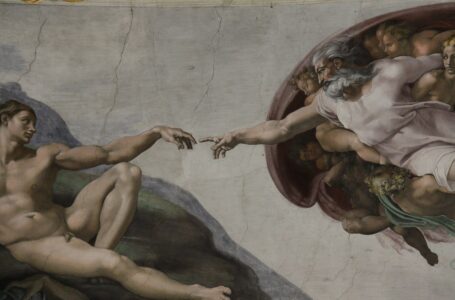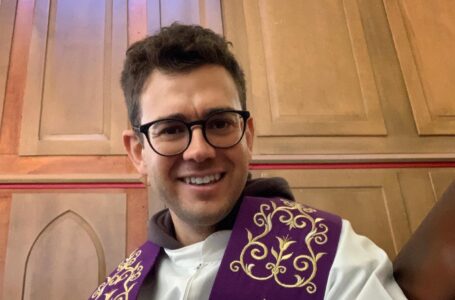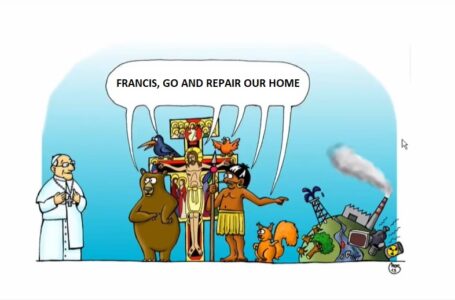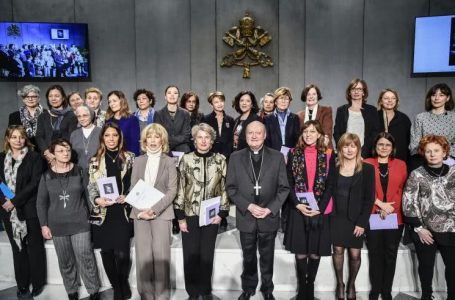Spiritual Gifts That Ordinary People Can Give to Our Non-Ideal World

Our world is anything but an ideal one. Many people struggle to conform to an elusive image of perfection in this non-ideal world of ours. This often leads to discouragement in the spiritual life and sometimes also to a certain cynicism, leading some to ask whether we can even speak of right or wrong when the good is so hard to identify let alone reach.
Instead, let us shift our attention to the spiritual gifts that ordinary men and women, far removed from the classic image of perfection, can offer our non-ideal world.
Bring to mind, the famous Vitruvian Man, which Leonardo Da Vinci had sketched to crystallise the proportions of the perfect man. In Da Vinci’s drawing, we catch a glimpse of the universal man. Da Vinci depicted the perfect man detached from any human relationships, not affected by emotions and supposedly transcending all cultures. Along with such idealism come very specific gifts and moral obligations which supposedly apply to all men—and to all women in a complimentary way.
Whilst our image of the perfect man or woman in an ideal world fits nicely into clearly-labelled and unambiguous categories, ordinary people defy such categories. Ordinary people like you and me rarely live up to predetermined moral expectations. Yet, surprisingly, they supersede many other expectations by far. Physical or mental limitations often hinder ordinary people from being physically or spiritually perfect in the eyes of many. Nonetheless, they have the capacity to tend towards perfection in their own way.
What, therefore, are some spiritual gifts that ordinary people can give to the non-ideal world?
1 They embrace their limitations and use them to their advantage.
The unspoken expectations set by society to be perfect assumes that everything—body and mind—is working flawlessly. This is not necessarily so. I learnt this from Fred. A middle-aged man, formerly a successful aviation engineer who became severely mentally and physically disabled following a car accident. Yet, his limitations did not paralyse him. Instead, Fred would merrily dance to any familiar music and he would give a big hug to anyone to express his affection. It was a real joy to have him around.
Some disabilities are not as evident as Fred’s. Fibromyalgia, chronic fatigue and headaches, COVID long-haulers, conditions related to the “pelvic area”, hormone imbalances. The list goes on and on. They are conditions that make us far removed from the popular image of perfection. Yet, each of these conditions brings with it very specific and personal ways of living our moral obligations. It is in living these obligations with fidelity that we, as ordinary and limited human beings, can be a gift to a non-ideal world.
2 They acknowledge their dependence on God and on others.
Our individualistic culture values independence and autonomy. Yet, this is nothing but an illusion. By nature, human beings need to be embedded in a web of relationships, imperfect though they may be. We know very well that we depend on others even as we learn how to become independent adult human beings.
One way in which we live our dependence is by living in community. The current pandemic serves as a poignant reminder that Church is not a noun. It is not a sanitized place, where you have your temperature taken, and where social distancing rules are respected. Church is a verb; something at which we become better every day. We become Church when we WhatsApp each other to share our hopes and fears, when we share food together and. Church is when we see in the face of our neighbour an icon of Emmanu-El.
3 Their perceived sinfulness becomes a wellspring of life for others.
Idealising men and women and setting them as models of perfection leads to anger and frustration when we finally realise that even they are limited like us. The problem with the tragic stories of abuse in the Church was not so much the abuse itself, but the cover-ups attempting to preserve the image of the ideal man. This is what guaranteed perpetrators that they would not be accused, allowing for the abuse to be repeated. If these men were not put on a pedestal, perhaps they would have evoked a tinge of commiseration for their frailty. This could have helped them to move on.
As a counter example, take Rahab the prostitute (Joshua 2). She is praised (Heb 11:31; Jam 2:25) certainly not for her sinfulness, but for being steadfast in faith. She receives praise for the admirable spirit of hospitality that she shows towards two foreign men whose lives were in danger.
Embracing our limitations, acknowledging our dependence on God and on others, and recognising our sins by making up for them with acts of mercy might be some of the direly-needed spiritual gifts of ordinary men and women for the world today.
Read more:
– Beauty Quotes














